A Year in East Africa
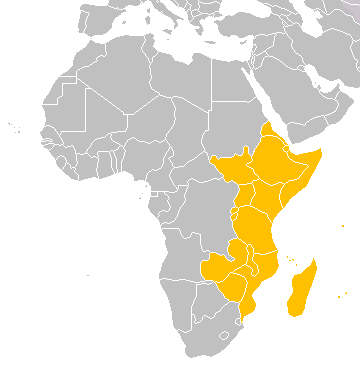
2015 was full of incredible moments for East Africa and some moments we wished could be erased from human history. We hope to learn from the mistakes in the past as well as be inspired by the potential and ingenuity that is rising up in this region of the world. This is a snapshot of 2015 for East Africa.
February
Robert Mugabe-Chair of the AU & SADC
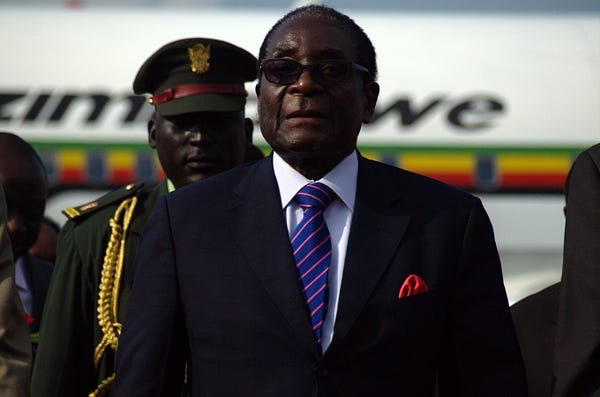
Photo Credit:
91 year old Robert Mugabe, President of Zimbabwe since the 1980s, was appointed the Chairman of the African Union. The position of AU Chair is a one year rotating Chairmanship and Mugabe was inaugurated in February of 2015 for his year long term. Mugabe, who was also Chair of the 15 state SADC (South African Development Community) until August 2015, had an opportunity to engage the international community in the first half of 2015 in a unique way.
April
Kenya University Attacks

Photo Credit: Anne Knight
Terror stuck Kenya this April when 147 people were massacred by 4 Islamic gunmen at Kenyan University. The Somalia-based militant group, Al-Shabaab, claimed responsibility for the assault. The raid on the University lasted hours and wounded countless people. Fear was struck into the hearts of all Kenyans as they questioned the ability of their government to protect them from neighboring Somalia. This was not the first attack by Al-Shabaab. In 2013, an Al-Shabaab gunman killed 67 people at Westgate Shopping Center in Nairobi. Following the raid, the Kenyan President admitted the need for increased police protection. Despite trying to reassure the public, concern remains high.
May
Crisis in Burundi
Tensions have been brewing for decades in Burundi, a country littered with a dark history of conflict and genocide. At this time it is estimated that over 200 people have been killed and nearly 250,000 refugees have been displaced due to the aggravations in country. It’s hard to have exact figures with a media blackout across the country, but the refugees pouring across the border are clear.
In May 2015, tensions in Burundi spiked. Protesters took to the streets after the Constitutional Courts ruled in favor of President Nkurunziza standing for a third term. In June, kerosene was doused on an already blazing fire as President Nkurunziza won a third term with 70% of the vote.
July
Obama is first US President to Visit Ethiopia
History was made this summer when President Barack Obama became the first sitting President of the United States to visit Ethiopia. Ethiopia is one of the world’s fastest growing economies as well as a hub for diplomacy in Africa. President Obama made bold steps toward Africa with the First African Leaders Summit in the summer of 2014 and followed it with this trip to Africa. President Obama visited not only Ethiopia but also Kenya, his ancestral homeland.
Though there were complaints over the cost of Obama’s trip as well as some of the rhetoric, the trip was still monumental. President Obama called on “the world to change its approach to Africa,” which sent a strong message to Africa as a global partner.
September
BRCK Education Launches New Product
BRCK Education launched massive advancements in education and technology with their new ultra-durable, value-priced tablet called ‘BRCK-Kio’. BRCK Education is a Kenyan company that designs products that aim to connect marginalized communities and classroom with access to education technologies and resources. Their tech-solutions tackle lack of electricity, Internet, high-data costs and low technology literacy.
Besides the durability of the ‘BRCK-Kio,’ the most revolutionary feature of the tablet is an Internet setting that reduces data costs while still delivering quality web-based content. With up to 8 hours of battery life, the tablet is created for remote communities with limited electricity. This technology could be revolutionary for tech-based teaching in emerging markets.
October
John Magufuli Next President of Tanzania
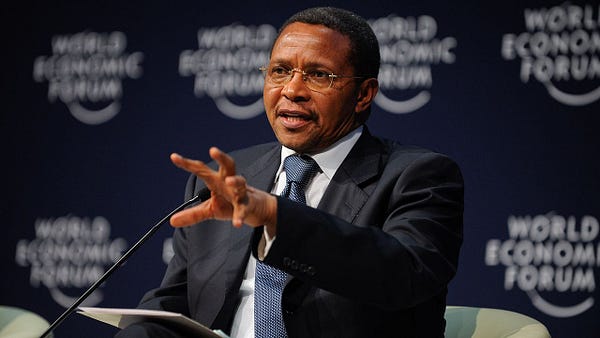
Photo Credit:
Jakaya Kikwete — Partnerships for Development — World Economic Forum on Africa 2011
This October, John Magufuli was elected as the next President of Tanzania, sealing another term for the ruling party CCM. John Magufuli was an unlikely candidate to follow the incumbent, Jakaya Kikwete, but Magufuli won the election handily with 58% of the vote. Magufuli was formerly the Minister of Works, but a chemist by trade. Magufuli is widely known for his hardline against corruption. Magufuli’s closest rival was former Prime Minister and Opposition Leader, Edward Lowassa. Lowassa refused to accept the official election results from the National Electoral Commission (NEC) and demanded a recount, claiming that the Ruling Party had rigged the elections. Even with the opposition clamoring, CCM continues their domination of Tanzanian politics, which has lasted since independence in 1960’s in the form of President John Magufuli.
Rwandan Constitution Allows for Third Term
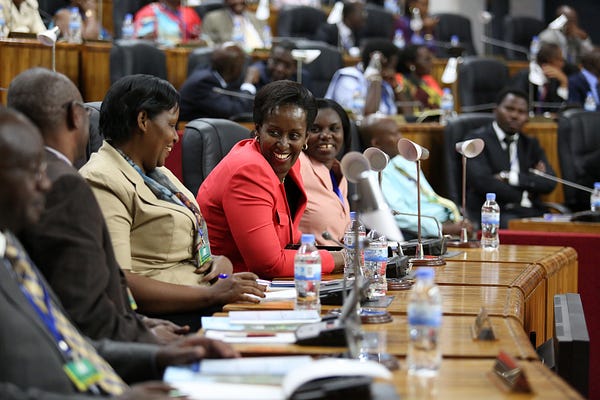
Photo Credit:
President Paul Kagame’s second term is drawing to a close, which would mean the end of his infamous Presidency. Last year, there were rumors of changing the constitution to allow President Kagame to run for a third term, and in October those rumors became reality as the Rwandan Parliament passed a referendum to amend the constitution to allow for a third Presidential term for the sitting President.
Public support in Rwanda is clear, though many from the international community have condemned Kagame actions as despot in nature. 3.6 million Rwandans signed a petition calling for a constitutional change and parliament met in response. Term limits are endlessly debated in many African Countries, but rarely is the conclusion as peaceful or conclusive. The public response speaks to the overwhelming popularity of the sitting President Kagame who is responsible for rebuilding Rwanda after the 1994 genocide.
November
Rwandan Cycling Team Wins Tour du Rwanda
Team Rwanda does it again this year, winning the Tour du Rwanda for the second year in row. The Rwandan Cycle Team is an inspiring story that continues to stir a nation. In 2012, a documentary was produced called ‘Rising the Ashes,’ telling the story of the Rwandan Cycling Team as the famous Jock Boyer helps prepare them for the 2012 Olympic Games. The story continues as they win this year’s Tour du Rwanda.
President Obama wasn’t the only historic trip to Africa this year. This December, Pope Francis made history with his first Papal visit to Africa. The Pope’s trip started in Kenya, continued in Uganda and ended in the Central Republic of Africa (CAR).
Pope Visits Africa
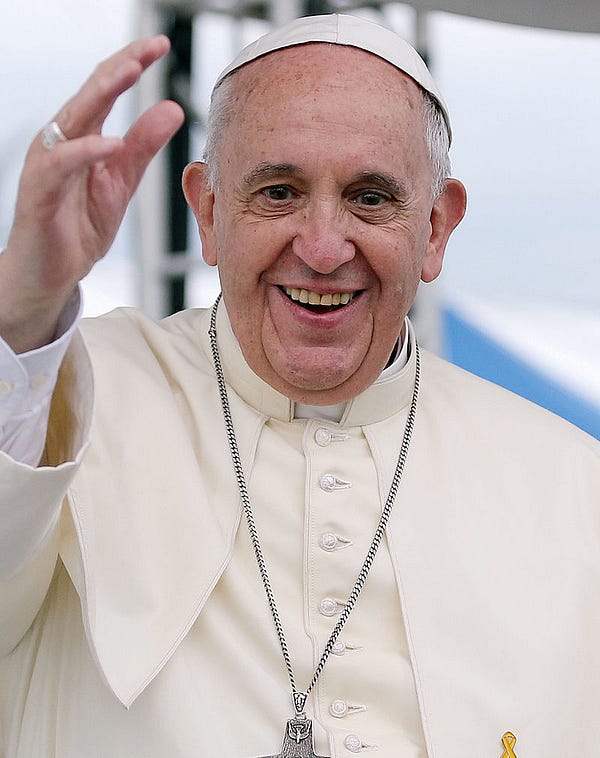
Photo Credit:
In Kenya, the Pope focused his message on climate change and poaching. Leading up to the high-level climate change talks in Paris this December, he urged nations to reach an agreement over curbing fossil fuel emissions as well as working together to find solutions for environmental degradation. On the issue of poaching, the Pope highlighted that poaching is not just an environmental problem, but also that it “fuels political instability, organized crime and terrorism.” Pope Francis also urged leaders to deal in transparency in the wake of a number of corruption scandals.
For a Pope with such a strong message of acceptance, the challenges in Uganda cannot be underestimated with gay rights under attack. However, Pope Francis focused his message on thanking Ugandans for their acceptance of refugees during a global refugee crisis.
The Central Republic of Africa (CAR) has been ravaged by war, making CAR another clear destination for Pope Francis on his African tour. There have been tensions in that region for decades but in the last two years the conflict became religious in nature between the Christians and Muslims. Pope Francis shared a message of unity, calling “Christians and Muslims brothers.” Pope Francis is the first Pope to come from the developing world and his sensitivity to the continent’s hurdles was evident throughout his visit.
First All Female Flight Crews in Africa
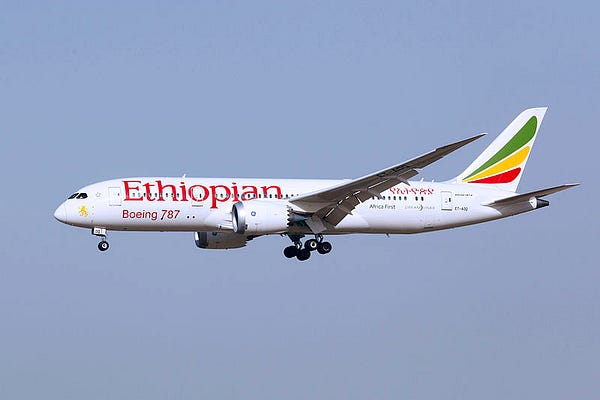
Photo Credit: byeangel
Women are taking flight in Africa. Ethiopian Airlines is one of the fastest growing airlines in the world. This November, the progressive airline launched its first ever all-female flight crew from Addis Ababa, Ethiopia to Bangkok, Thailand. The CEO, Tewolde Gebremariam, recognizes that the continent is behind on women’s empowerment. He saw this historic flight as an opportunity to inspire women across the continent and also to attract women to the aviation industry.
The week before, two female captains also made history for Air Zimbabwe when they commanded a flight from Harare to Victoria Falls. These all-female flight crews were an exciting step forward for Ethiopian Airlines and Air Zimbabwe as well as for the women of Africa. The skies are open.
